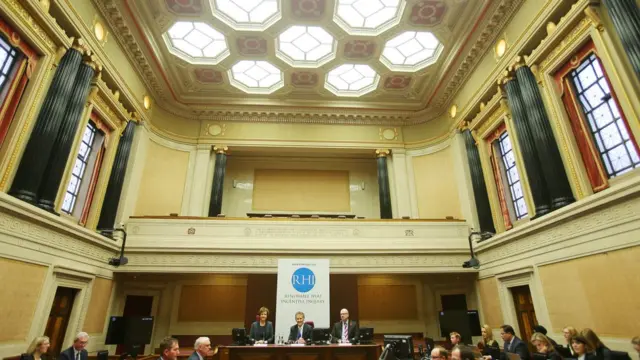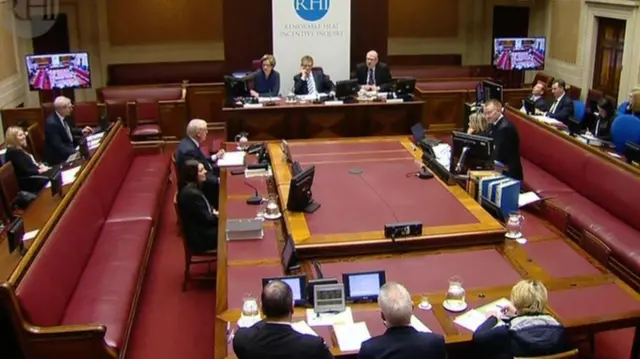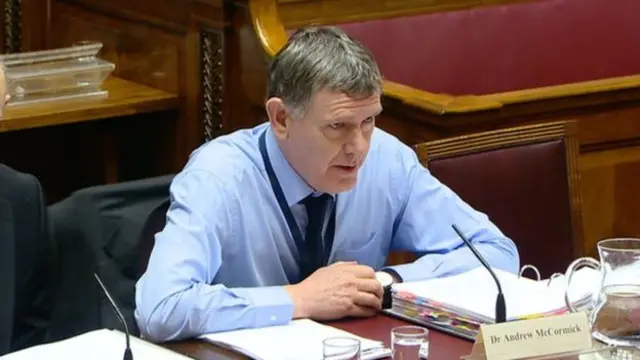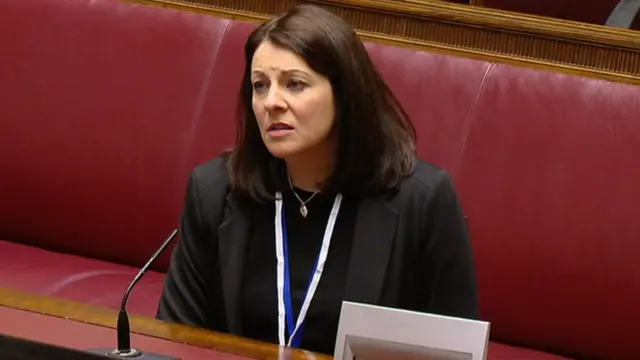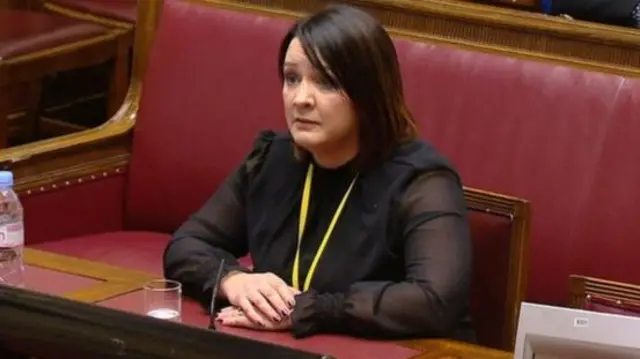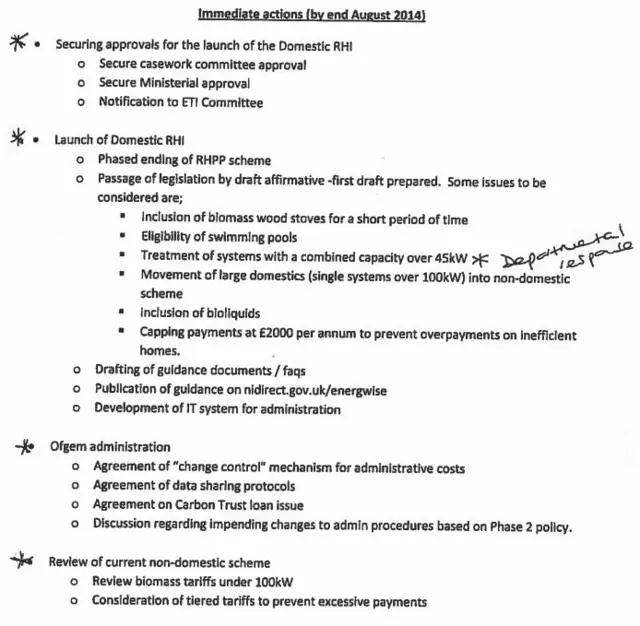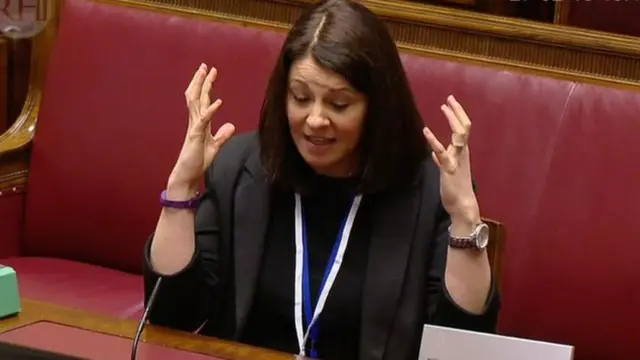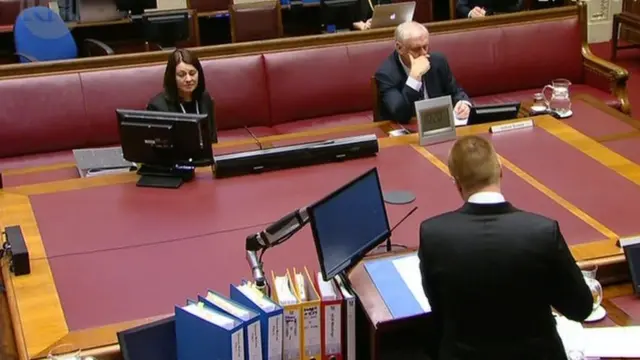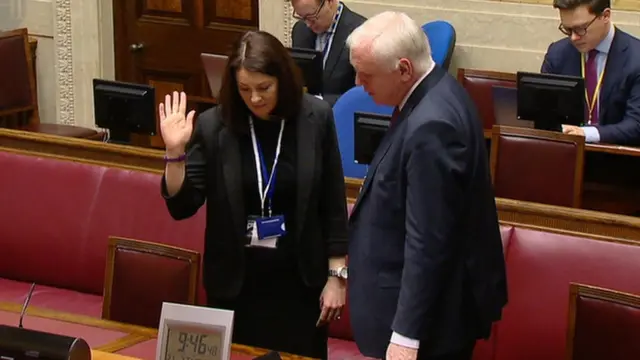That's all for now...published at 17:50 GMT 27 February 2018
It's been a long day for Ms McCay and the inquiry panel, but her evidence finally comes to an end and she'll not have to return to the Senate chamber for more questions.
Inquiry chair Sr Patrick Coghlin notes that today's proceedings have overrun by more than half an hour, and he tells Mr Aiken that it wouldn't need to become a habit.
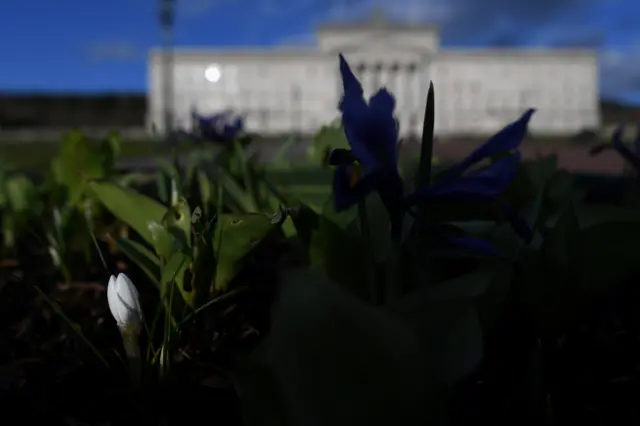 Image source, Reuters
Image source, ReutersWe'll be back tomorrow morning from 09:45, when the inquiry will be hearing from David Thomson, a former senior manager at DETI, about his role in the RHI scheme.
But for now it's good evening from us...

